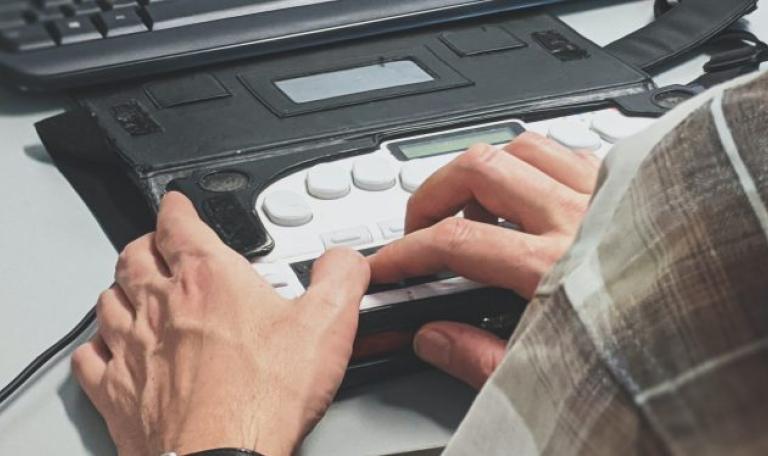Disability History Month: digital inclusion for all

The 16th November – 16th December marks Disability History Month, an annual event that focuses on awareness raising, the history of disabilities in the UK, and working together to challenge and change perceptions.
Disability History Month recognises the Social Model of disability, developed by disabled people, in which the attitudes and physical barriers imposed on disabled people by society is what prevents them from achieving their full potential. It recognises that it is the responsibility of government, businesses and individuals to ensure that society is organised in a way that provides all people with accessibility, independence, and opportunity.
A recent report by Sense looking at complex disabilities estimates that there are 1.6 million people in the UK living with two or more conditions impacting their daily lives, and 1.4 million of them are living in England. Access to social care is clearly a crucial component to how some disabled people can be empowered to lead their lives in a way that suits them and supports their needs.
Statistics looking at disabilities and social care access for 2019/20 tell us that over 1 million disabled adults in England accessed social care support. Out of those 1 million adults, 155,400 of them were accessing support due to a learning disability.
Many disabled people will access social care, and it’s important that care services are able to cater for people with accessibility needs so that everyone receiving support has the same experience. One thing that can often be overlooked is digital inclusion. Digital inaccessibility can produce a range of barriers that prevent people from participating in society.
Statistics released by Lloyds Bank in 2020 demonstrated that 42% of people with a disability had low or very low digital engagement and that 32% of those people did not have the digital skills and confidence to access information online. Staff working in support roles can play an active role to improve this, and there is advice and guidance available to help. If you are a registered manager of a care service and want support in making your digital environment accessible, there are resources available to help you.
Think about the people who use your service and what support they might need. SeeAbility have produced a helpful framework for thinking about the practice of supporting people with learning disabilities to use technology. This consists of a core belief system with case studies and examples that help carers and managers of services to think about different scenarios and ways to incorporate digital inclusion.
There is also free advice and information available from tech experts at AbilityNet. They will speak to support workers about their clients accessibility needs for free as well as offering free tech support and advice directly to older or disabled people. In addition to this, AbilityNet have a handy range of factsheets that provide advice and information about how computers and other technologies can help people with disabilities.
Whilst current data on disabilities within adult social care is scarce, things are changing. The ARC England Learning Disability Research Unit exists to enable a step-change in the understanding and appreciation of this large part of the social care sector. The research unit aims to provide new insight into the size, value, structure and dynamics of the sector, identifying best practice and helping to inform business planning and shape future policy making.
This Disability History Month, we encourage providers of all shapes and sizes to think about digital inclusion, what it means to you and how it could benefit the people using your services.
Further information
- Join the online launch of DHM on Thursday 17th November
- Read more about the social model of disability
- ARC England Research Unit